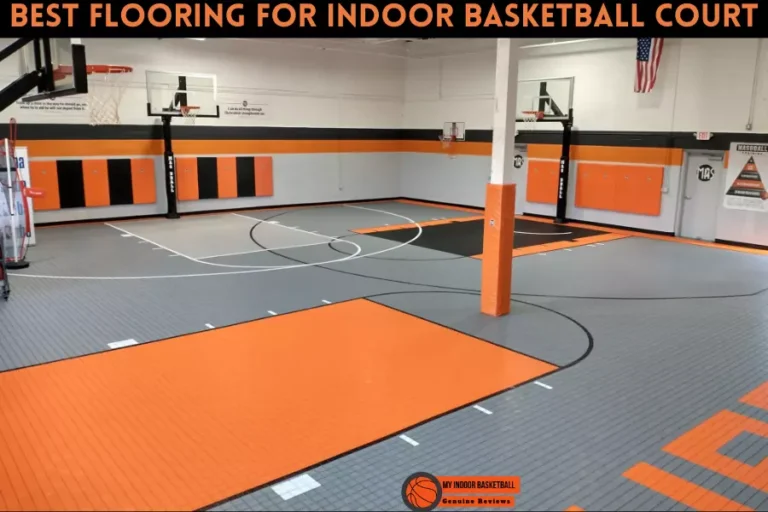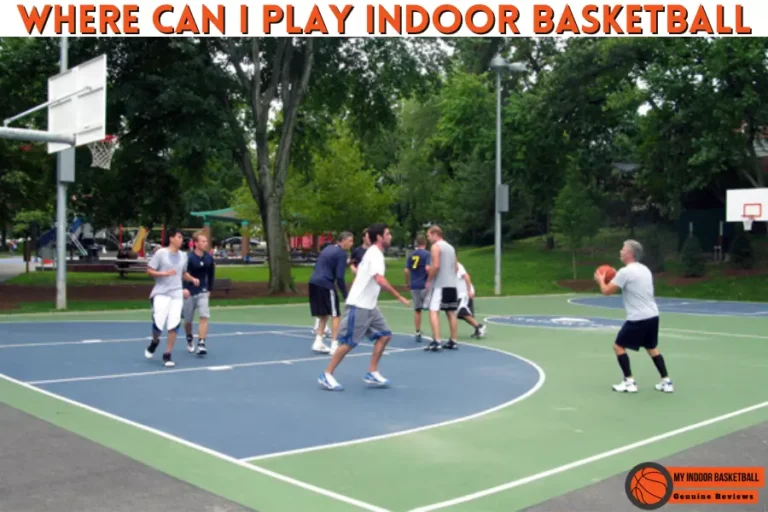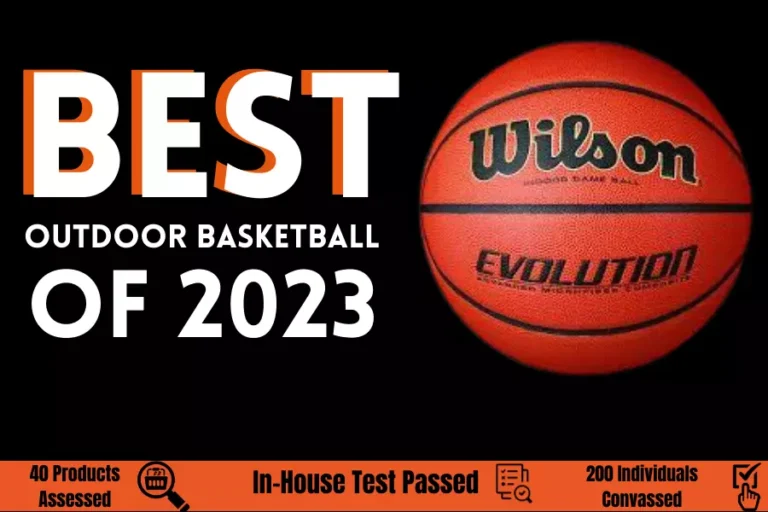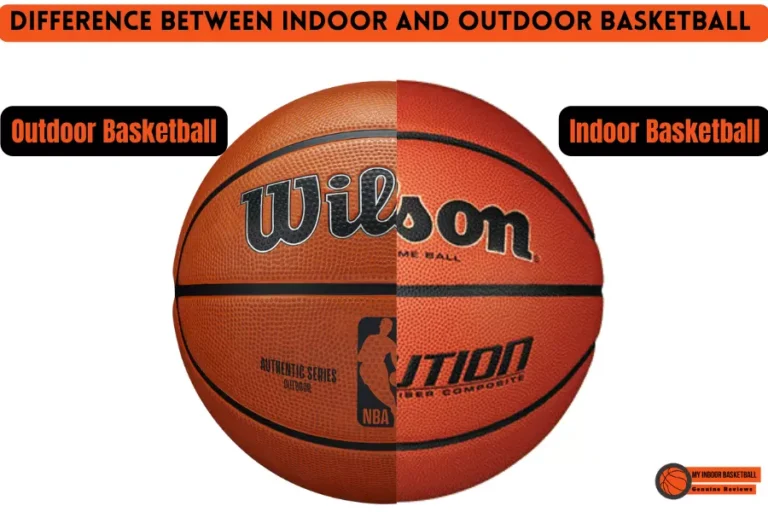What is Reaching in Basketball [NBA Updated Rules for 2023]
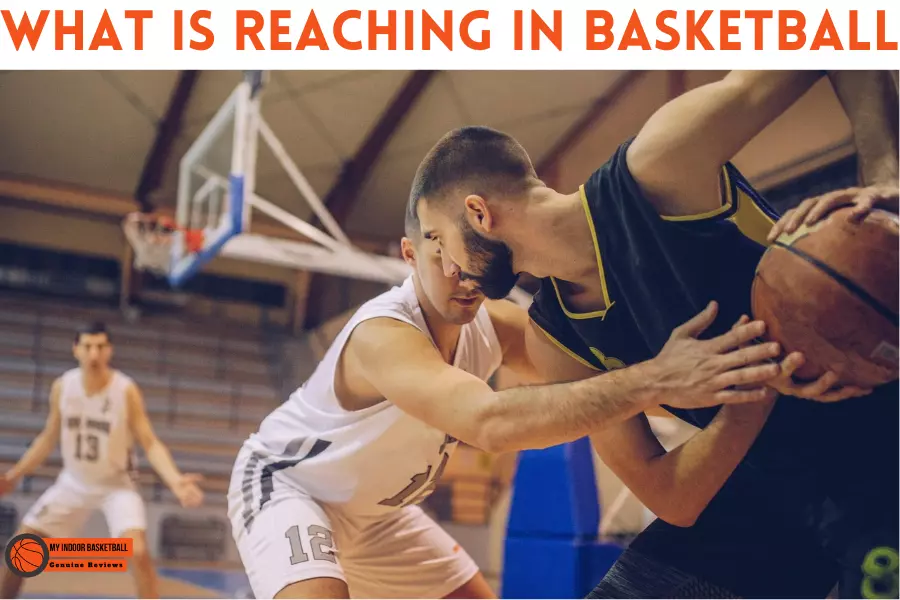
What is Reaching in Basketball? Reaching in basketball can be defined as a player making contact with an opponent with their hand or arm beyond the shooting lane to impede the opponent’s progress towards the ball. This is a foul often called when an opposing player attempts to steal the ball from another player and is met with resistance. Reaching in basketball can be seen as a dirty play, as it often intimidates opponents and disrupts their ability to play the game at its highest level.
Reaching is a Foul in basketball
What is Reaching in basketball is defined as making physical contact with an opponent or the ball beyond the bounds of the playing area. It is foul and can result in a penalty if committed by either team. Reaching includes grabbing an opponent’s arm to slapping the ball out of their hands.
While reaching is considered a foul, it doesn’t always result in a punishment. Depending on the situation and how blatant the reach was, officials may call only a warning or even let the play continue. However, harsher penalties may be handed down if the reach results in an offensive foul or prevents an opposing player from scoring. Here are the fundamental concepts of what is reaching in basketball and how it impacts the game of basketball.
Prohibited Usage of Hands and Arms
Reaching in basketball is an illegal action. It is not just reaching with your hand but also grabbing or holding another player’s arm. This can be a penalty if it is done during the game.
Battling for Position
Reaching in basketball is a crucial part of the game. Players use their arms and hands to get close to the ball to contest shots or grab rebounds. Reaching has important tactical implications, as it can help defenders keep opponents at bay or block shots. However, reaching can also have physical consequences. When players reach for the ball, they risk being fouled or making an error on the court.
Defensive Player Can’t Touch Ball
Reaching in basketball is any contact with the ball that goes beyond what is considered a regular defensive action. Reaching can be done with the hands, arms, or body.
Reaching can be a problem for defenders because it leads to free throws. A player who reaches in the air with his hand or arm will get a penalty called against him called reaching (or grabbing). This penalty results in a free throw for the player who reached and a penalty shot for the other team.
What Is The Reach-In Foul In Basketball?
Reaching in to try and steal the ball from an opponent is a common foul in basketball. The reach-in foul is a technical foul assessed when an offensive player reaches into an opponent’s space to take the ball away. This can be infringed upon by either hand or body, resulting in a loss of possession for the offending team.
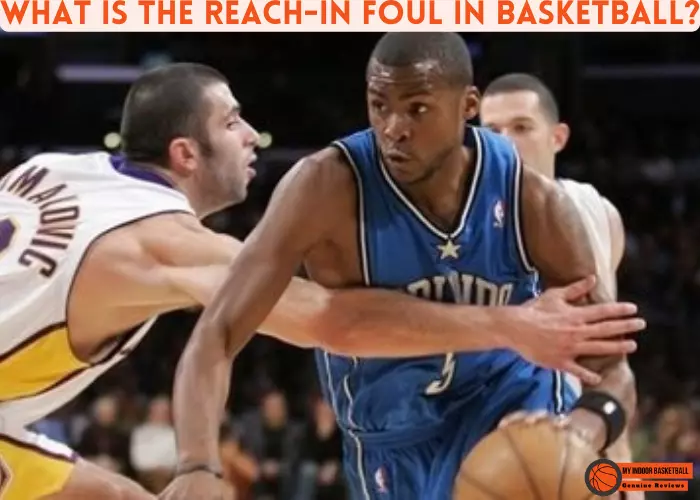
Reach-in Foul
Reaching in to steal a ball is a common foul in basketball. But what is reaching in? The NBA rulebook defines it as “reaching into the circle with the intent to intercept or deflect a thrown ball.” This includes any part of your body that enters the court. It’s an easy call for the officiating crew, and it’s taken away from players at an alarming rate. In 2017-2018, reaching in resulted in a missed free throw on 19% of all fouls. That’s more than double the rate from 3 years ago. With so much at stake, referees need to be sure they’re calling this foul correctly.
NBA’s Description Of Illegal Contact
NBA officials have a strict definition of what constitutes illegal contact. A player cannot physically contact an opponent above the shoulders, below the waist, or at any point above the hips. This includes any touch, whether a pat on the backside or a blatant elbow to the face. In addition, players cannot use their bodies to block shots from behind or impede an opponent’s movement.
Basketball fouls
Basketball is a sport that relies heavily on physical contact. When two players are trying to get the ball, it is common for them to bump into each other. This contact can result in a foul being called. There are different basketball fouls, and reaching in is one of them. Reaching in means making unnecessary physical contact with another player. It can be done with the hand, arm, or body. Reaching in is usually illegal because it causes an opponent to receive the ball disadvantageously.
Reach in foul vs. steal
Reaching in basketball is defined as a player’s hand or arm extending above the horizontal plane of the floor to intercept a pass or steal. The legal reach distance for a player is 3 feet, 6 inches. A foul will be called if a player extends their hand or arm more than 3 feet, 6 inches from the opponent, to interfere with their ability to play the ball.
What Are The Retributions For “Reaching In”?
Reaching in to steal a ball from an opponent is a common action player take during basketball games. It is considered illegal under the game’s rules and can lead to penalties. Reaching in to steal a ball can result in a foul and may also result in a technical foul if done repeatedly. If the player reaches with the intent to take or hold the ball, they will be charged with stealing. The player who is reaching will also usually receive a foul call.
What is deemed illegal touch in basketball?
Contact in basketball is defined as any physical interaction between players. This can include everything from a simple hand touch to a full-blown shove. While contact is considered necessary for action and movement on the court, a few rules prohibit contact that can lead to a technical foul.
The most common type of contact is reaching. Reaching is when a player extends their arm or hand beyond the imaginary line that separates the players on the court. This can be an attempt to block a shot or steal the ball, and it’s usually punishable by a tech foul.
Another type of contact that often results in techs is grabbing and holding. Grabs and holds are hands-on actions intended to stop an opponent from moving, and they’re usually penalized with either tech or flagrant fouls, depending on severity.
Can you steal the ball in basketball?
In basketball, the possession of the ball is a vital element of the game. Players must reach through their opponents to grab the ball to secure it. Reaching is essential in basketball as it allows players to control the ball and capture offensive rebounds. A player can also steal the ball by reaching into another player’s space and grabbing it before it touches the ground. However, some restrictions exist on when and how a player can reach for the ball.
Players are not allowed to touch their opponent with their hands or arms while in contact with them within five feet of the basket. Additionally, players cannot grab opponents by their head or neck or hold them against their will. These rules help to keep play flowing smoothly and ensure that each player has an opportunity to compete for the ball.
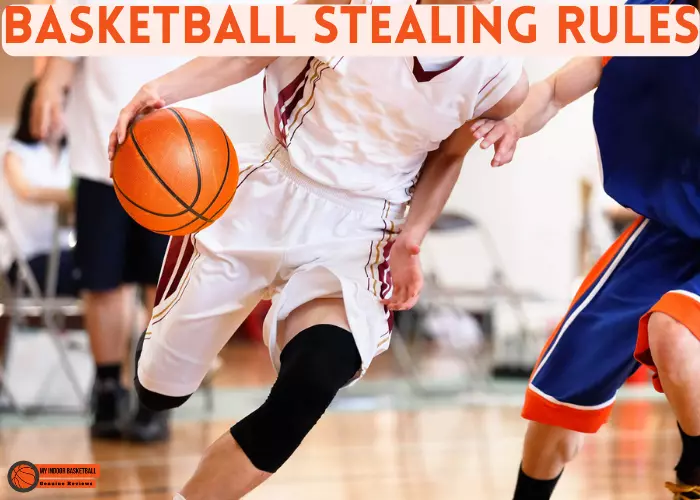
Basketball Stealing Practices
Basketball stealing rules can be confusing for players, coaches and fans. Here is a breakdown of the most common stealing rules in basketball:
Closing What is Reaching in Basketball
The term “reaching in basketball” describes a player’s action of extending their arm or hand beyond the foul line to get a steal or make an interception. Reaching can be done in several ways, but the most common is when a player stands with one foot on the baseline and extends their arm over the top of the backboard. Reaching limits a defender’s ability to defend against the player at the free throw line and can lead to turnovers or missed shots.


